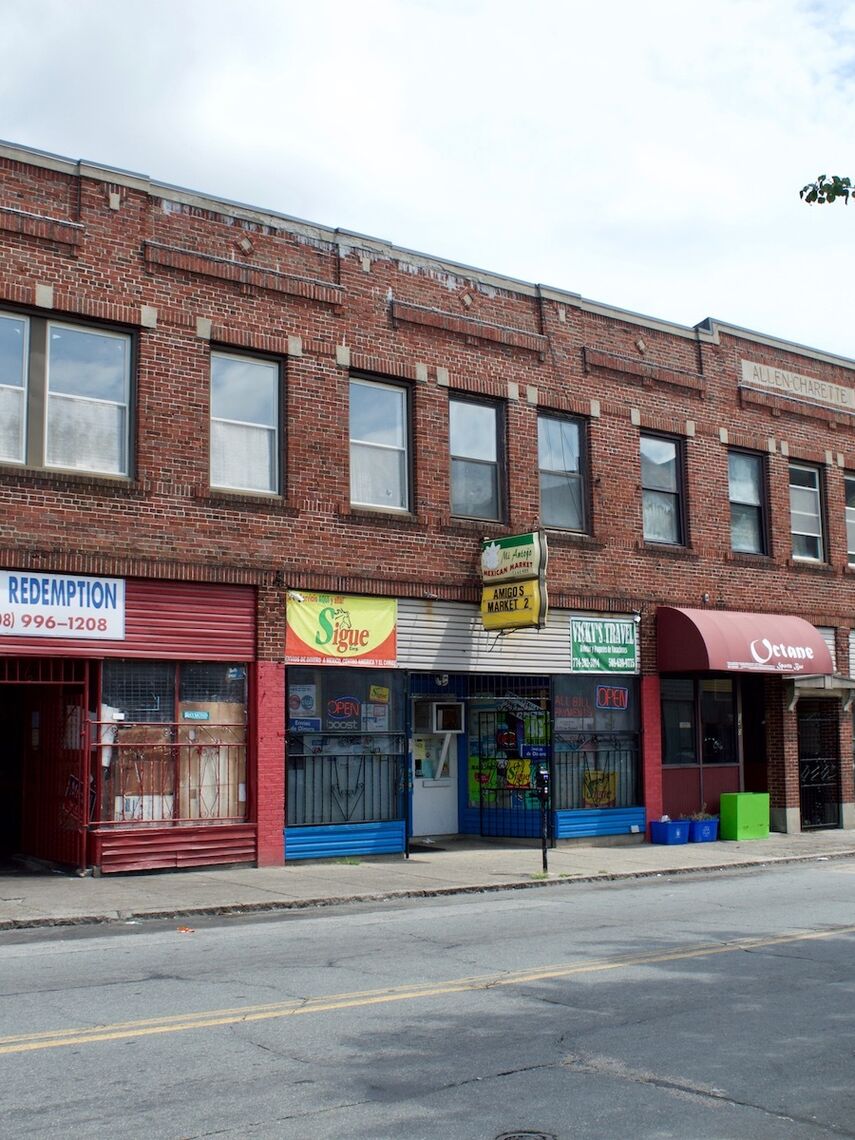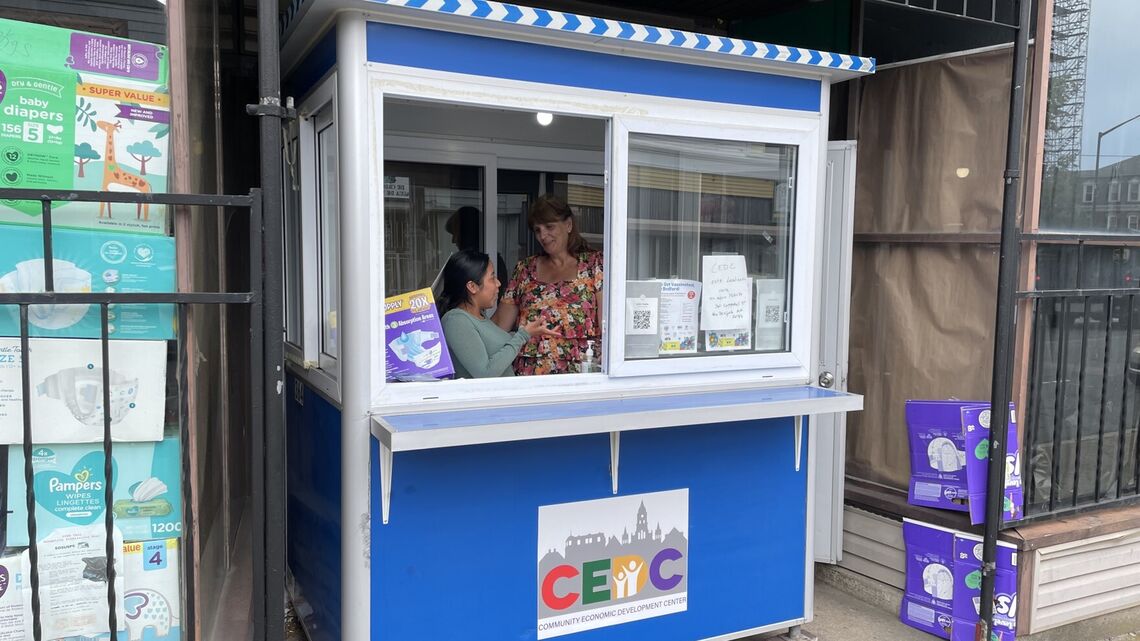New Bedford Capitol Theater Redevelopment
Can a historic movie palace in disrepair be reimagined into an engine for economic and social mobility for a largely Guatemalan neighborhood in New Bedford's North End? A trusted community anchor emphatically believes the answer is "Yes!" - and is empowering its residents and aspiring entrepreneurs to realize this vision.

Overview
The Community Economic Development Center in New Bedford purchased the historic Capitol Theater on bustling Acushnet Avenue and engaged Urbane to assist in its transformation into a hub that supports economic and social resilience for its residents.
Community Economic Development Center (CEDC)
2020 - 2021
Market Analysis and Feasibility Study
Concept Recommendations
Programming Recommendations
Funding Sources and Uses Memo
SWOT Analysis

Synopsis
Founded in 1997, the Community Economic Development Center (CEDC) works closely with residents and businesses in the North End of New Bedford to foster economic justice in the local economy through people-centered development. While New Bedford has a storied history of whaling and textiles corresponding with waves of immigration from Europe, particularly from Portugal, and later its colonies, such as Cape Verde, the North End and Acushnet Avenue have emerged as a bustling center of commerce and culture for more recent Central American immigrants, with a particularly robust Guatemalan population, inclusvie of a sizable pocket of K'iche'-only speakers.
CEDC’s work in the community has revealed that many residents of the North End, similar to other immigrant enclaves, are hesitant or unwilling to use many kinds of formal government facilities and resources due to a general fear and lack of trust that is exacerbated by the City's limited presence and investment in the neighborhood. The community lacks equitable access to essential services including health care, legal services, employment services, and education, as well as opportunities for economic and social empowerment. Moreover, the North End neighborhood is cut off by a highway from the rest of the City.
The historic Capitol Theater movie palace opened in 1920, drawing visitors to the Near North End for daily programming until it closed as a movie theater in the 1960s. While it continued on as a concert and special events venue after its formal closure, it has been largely vacant since the early 1980s. The two-story property currently includes six street-level storefronts along Acushnet Avenue, vacant office space on the second floor, and a large vacant theater space, which once held a single-screen, 1500-seat movie palace.

CEDC purchased the historic Capitol Theater on Acushnet Ave in 2019 with the goal of working with its rehabilitation partners to transform it into a resilience hub that supports environmental, economic, and social resilience. In 2020, CEDC engaged Urbane to develop a plan and propose concepts for the build out of mixed-use spaces and comprehensive programming for the vacant theater space that support economic and social resilience. At the Capitol Theater, CEDC hopes to manage mixed-use spaces and comprehensive programming that will engage the community, provide connectivity, and close the gap on economic, health, and social outcomes for the neighborhood.
The primary purposes of the project were to identify the challenges facing the North End community and opportunities for economic and social empowerment at the Capitol Theater, as well as to determine priority project components for the redevelopment and offer recommendations to guide the planning and establishment of an economic and social resilience program. Through our coversations with both CEDC and other stakeholders, five prioritzed project components for the reimagined theater emerged in the following order: an entrepreneur market to supplement earnings, a satellite community health clinic, an educational and training programming, a collaborative coworking space, and dedicated space for community-based programming.
Given the ongoing pandemic, Urbane conducted virtual and limited in-person stakeholder interviews and also interacted with residents, business owners, and municipal workers in the North End and throughout New Bedford during a socially-distanced two-day site visit to the city. Urbane worked closely with CEDC staff throughout the consultation to facilitate partnerships and broker introductions when and as applicable.
In addition to an internal SWOT analysis with the CEDC staff, a final project report included existing conditions analysis, a retail market analysis, concept outlines for the five project components, including considerations and next steps for planning and operationalizing, and a funding sources and uses memo of financing tools and available capital to bring the project to fruition.
Despite a horrific fire this April (2021) that killed two and displaced more than three dozen residents, along with destroying CEDC's headquarters, the resilient organization - and the community it serves - continue to surmount the obstacles that come their way, and aim to realize the theater redevelopment in 2023.

